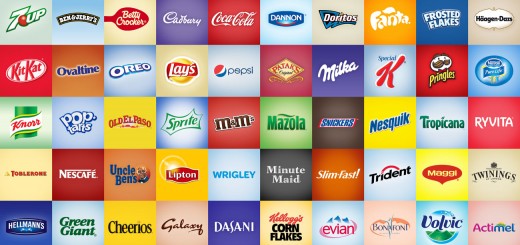Marketers, it’s time to step-up in a mobile first world
Media planning and buying on TV, press and other traditional channels is a relatively straight forward process. Take a creative asset, plug it in and ready to go. Marketers and advertisers rely on these channels to broadcast their messages and hope that it reaches the right audience in the right amount. It may be simplistic but that has been the industry standard.
Today, our media paradigm has shifted with consumers spending more than half of their screen time on mobile. In Asia Pacific, mobile users consume mobile content almost as much as their global counterparts. In fact, 76 per cent of mobile users in India, Indonesia, Philippines and Vietnam are accessing content via their mobile devices.
Even in this environment of new and disruptive technology, ad makers are still trying to push old models onto the 4-inch screens in our hands. It is unsurprising that many campaigns miss the mark securing and earning user engagement. The way we see it, mobile is a lean-in medium where consumers make a conscious choice of what they want to consume, how much time they want to spend and where they consume the content. So marketers, here’s what you need to do to stay ahead of the curve.
a) Today’s primetime
If mobile is the first screen, then advertisers need to find the apps that are driving attention. However, with over 3 million apps available on the app stores, what matters most is the top 1000 grossing apps that have the most active and loyal mobile users. They are fully immersed in the content, interacting with advertising and making purchases. We call this ‘Today’s Primetime’ where you can find rapt consumer attention and engagement with an audience size and content consumption most comparable to TV.
Looking at data from the top 100 apps that use AdColony’s mobile ad platform to monetise traffic, our Mobile First Insights report found that mobile users in Asia Pacific are spending about 46 minutes each of these popular apps. This is 50 per cent more than the global average of 30 minutes.
What’s even more clear is that apps are where the most value is. Click-through on apps was found to be between 1.3 times to twice as high as mobile web click-through. In Singapore and Thailand, app advertising revenue surpassed the mobile web channel by as much as 13 times.
b) Rethink creative, don’t just repurpose
The rise of flashy banners (read barely visible, untargeted ads) and intrusive pop-ups has brought many new vendors offering ad-blocking capabilities. Part of the problem is that this has been the default way for agencies and brands to repurpose or adapt existing assets from TV, press, billboards and other online formats to fit to the mobile screen. As a result, these formats on mobile interject and disrupt user experience.
So the opportunity to do something creative is more important than ever. According to our Native Video Fund Study, purpose-built, native video ads drove significant lift for brands. From a marketing perspective, this fast emerging ad format shows great promise, but demands a new set of creative skills to maximise effectiveness. It is important for brands to make an impression quickly and engage with the consumer to drive campaign success.
c) Make it an immersive experience
Since the real estate on mobile is small, it is important to design and custom create the right content that delivers on user experience. To do so, our mobile video ads feature dynamic end-cards to encourage interaction and create that lean-in experience, encouraging users to play a mini-game, install the app, download the coupon, or otherwise participate in a myriad of engagement options.
Take the case of Disney Studios and Dentsu to introduce Disney Pixar’s Finding Dory movie characters to audiences on mobile. While video trailers were key to bringing audiences to the big screen, Indonesia was crippled with a 48 per cent video stall rate. By leveraging Ad Colony’s Instant-Play™ HD mobile video and dynamic end-card, we were able to bring to life the rich and detailed coral reef as well as the backdrop of Finding Dory. As a result, users got the chance to interact and explore their 360 degree coral reef before going to the theatres.
d) The power of context
When there is too much clutter mobile users will just bounce. However, data signals have become available through phones, wearables and consumer provided info to reduce the noise and allow for tailored consumer journeys. The challenge lies in delivering well-developed advertising to the right people at the right time, in the right manner. For brands, this ensures advertising resonates and brings about a return on investment while maximizes yields for publishers.
By improving the creative developed via mobile and personalising advertising experiences based on time, place and location of mobile users, we can not only reach our target audience but create a truly meaningful and engaging experience for them.
e) Continuously innovate
Apart from designing purpose-built creatives, brands have the opportunity to innovate and leverage technology to connect with their users in the most exciting, entertaining and organic way. Today, we have haptics technology, which brings sight, sound, motion and feeling to the mobile user, providing an up-close and personal experience.
Together with iconic spirits brand Stoli, and Immersion Corporation, we were able to create a mobile video ad that prompted the phone to vibrate in the user’s hand when the bartender in the ad shook a martini. A first-of-its-kind ad, it was delivered to 1 million users, with extraordinary results.
While it may seem that the platforms and challenges presented by our increasingly digital and mobile-centric world have made the job of advertising to consumers more difficult and complex, it’s a far cry from the two-dimensional world of print and TV advertising. With continuous innovation and evolution of new formats – think vertical videos and growing use of native – we are able to cut through to consumers. Advertising on mobile must become more interesting, entertaining and insight-led process that is as creative as it is business-savvy.
The post Marketers, it’s time to step-up in a mobile first world appeared first on Digital Market Asia.



